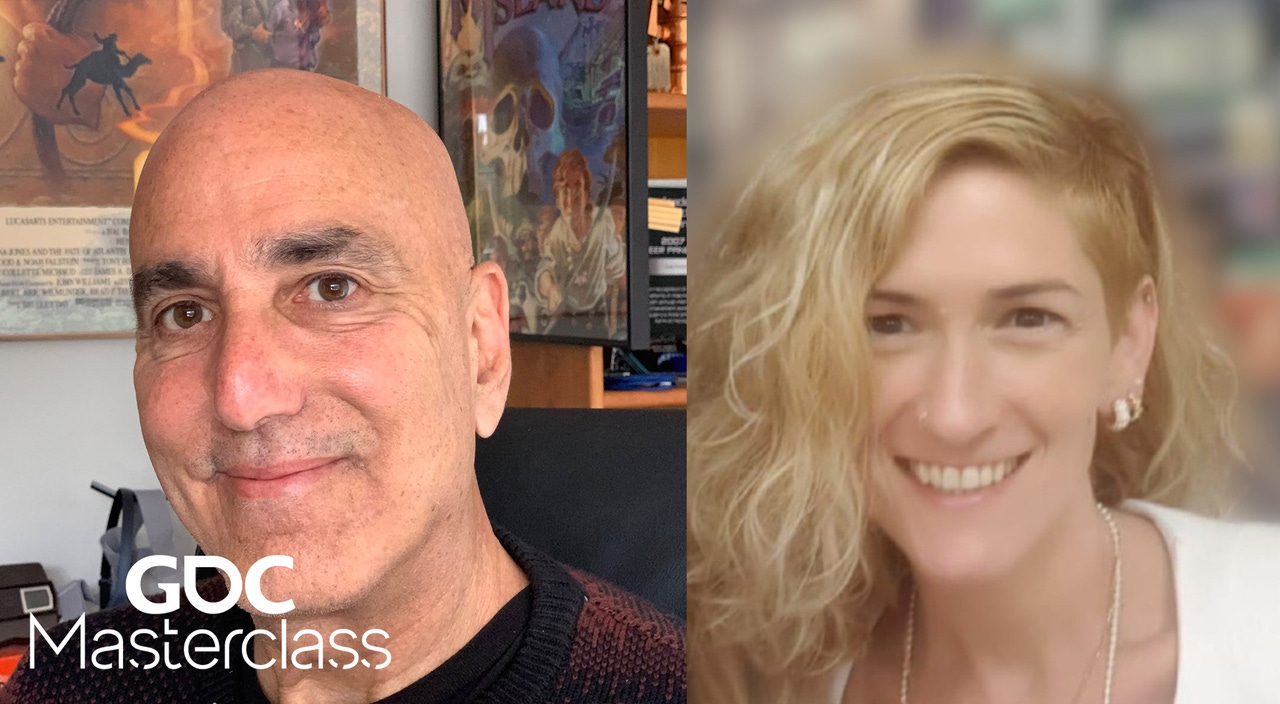Trending
Opinion: How will Project 2025 impact game developers?
The Heritage Foundation's manifesto for the possible next administration could do great harm to many, including large portions of the game development community.
Dasy and Noah chatted with GDC about their one-day GDC Masterclass, "Designing, Developing, and Funding Healthcare Games and Digital Therapeutics," which is being held at the AI Summit during London Tech Week on Thursday, June 16 from 9:30am to 5:30pm BST.

Curious to learn more about the rapidly growing overlap of gaming, health, and neuroscience? Noah Falstein and Dasy Mandel share more about this "potent partnership," which they cover in their upcoming GDC Masterclass in London this June.
Dasy Mandel (Investment Principal, Sanara Capital & Founder, Games for Health Israel) and Noah Falstein (Game Developer & Executive Advisor to Akili Interactive) chatted with GDC about their one-day GDC Masterclass, Designing, Developing, and Funding Healthcare Games and Digital Therapeutics, which is being held at the AI Summit during London Tech Week on Thursday, June 16 from 9:30am to 5:30pm BST.
This interactive workshop showcases the multitude of ways by which game mechanics, techniques, and technologies can be used to increase engagement and adherence, promote patient-centric care, and be applied for a wide range of healthcare verticals, from digital therapeutics and diagnostics to education, awareness, and training.
The course is perfect for game developers (particularly designers and producers/project managers), healthcare industry professionals, clinicians, and therapists—along with pharma executives and investors interested in a deeper dive into this growing field.
Below is an edited, condensed version of our interview.
GDC: Tell us a bit about your course and what attendees can expect to gain from the in-person Masterclass.
Noah Falstein: We will be packing a lot of information and interactive content into a single day. We'll delve into the creative, production, marketing, and financial challenges of this field, and share techniques and solutions to those challenges that have worked with many of the game/health industry success stories. We'll coach attendees on whether or not to seek regulatory approval, how to find innovative solutions, how to get funding, and much more.
The in-person format will make it possible to address individual's issues as well as instruction useful to everyone.
GDC: What are some of the most interesting developments you’ve seen in games and health over the past couple of years—especially in the VR and AR fields?
Noah: The pandemic has, through necessity, greatly accelerated acceptance of digitally delivered health care of all kinds, and driven large investments in both telehealth in general and game-centric or game technology powered applications in particular. It also helped fuel the growth of the VR headset market as people sought in-home entertainment, including exercise solutions like Supernatural and Beat Saber.
Both VR-centric game/health ventures like AppliedVR and non-VR companies like Akili Interactive and Level Ex (to name a few) have benefited from FDA clearances, large investments, or acquisitions. Akili is scheduled to go public this year with a billion-dollar valuation on the strength of their doctor-prescribed game.
But aside from the success stories, it's fascinating to see how diverse this sector has become—with games being used to train doctors and therapists and diagnose diseases and disorders. There's also digital therapeutics focusing on ADD/ADHD, anxiety, PTSD, pain remediation, dementia, trauma, depression, even myopia!
GDC: What can medical/health professionals learn from the game dev field, and vice versa?
Noah: It's a very potent partnership. Games can provide the key elements of engagement and adherence that medical treatments often require, while medical professionals can provide the expertise and experience to create life-changing applications—and conduct the trials to verify their effectiveness.
It seems these days no one graduates medical school without putting in many hours playing video games to unwind, and the medical industry is always reaching out to use the latest technology for their own purposes. Big pharma companies also know how to work within the restrictions of regulatory boards and governmental policies to spend the time and money necessary to succeed, on a scale similar to or exceeding AAA game development.
GDC: What’s something interesting that you enjoy or do that most people might not know about you?
Noah: I have been a science nerd all my life, and my work in games has led me into partnerships with NASA, the Federation of American Scientists, and the National Science Foundation, but working with doctors and medical researchers has proven to be even more fulfilling as it lets me make games that improve people's health—and sometimes even save lives!
Dasy Mandel: Intrigued by the way our thought patterns determine our emotions and behavior, throughout the years I've studied different cognitive-behavioral modalities. I'm a certified NLP practitioner, qualified Focusing trainer, and now completing my internship as a Cognitive Behavioral Therapist. I enjoy spending one day a week in my digital clinic working with tech & healthtech entrepreneurs & executives, utilizing these techniques to manifest desired change and growth. Now, integrating these tools & techniques into digital health products & games, I look forward to seeing broader impact created.
Be sure to head to GDC Masterclass for more information on Dasy and Noah's Designing, Developing, and Funding Healthcare Games and Digital Therapeutics course, which runs June 16. This course is happening in-person at London Tech Week's AI Summit, taking place at Tobacco Dock.
GDC returns to San Francisco in March 2023, and the call for submissions opens this summer! For more information, be sure to visit our website.
Subscribe to the GDC newsletter and get regular updates via Facebook, Twitter, LinkedIn, or RSS.
Game Developer and GDC are sibling organizations under Informa Tech.
You May Also Like